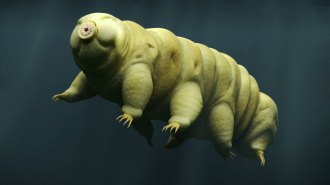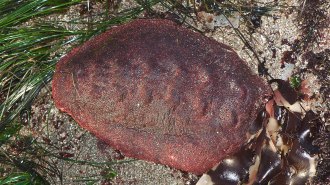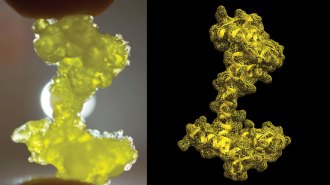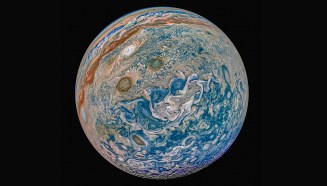Uncategorized
-
 Health & Medicine
Health & MedicineAfter vaccinating 95 percent of adults, a Brazilian city is returning to normal
An experiment to vaccinate all adults against COVID-19 in Serrana shows that widespread immunization drastically cuts hospitalizations and deaths.
-
 Health & Medicine
Health & MedicineA repurposed TB vaccine shows early promise against diseases like diabetes and MS
The potentially helpful effect of the BCG vaccine on type 1 diabetes and other autoimmune diseases is beginning to make sense.
-
 Life
LifeEven hard-to-kill tardigrades can’t always survive being shot out of a gun
A recent experiment put tardigrades’ indestructibility to the test by firing the critters at speeds up to 1,000 meters per second.
-
 Health & Medicine
Health & MedicineVaccinating people in developing countries costs far less than doing nothing
Shots for half the adults in those countries will cost $9.3 billion, the Rockefeller Foundation reports. Doing nothing could cost trillions.
-
 Astronomy
AstronomySome fast radio bursts come from the spiral arms of other galaxies
Tracking five brief, bright blasts of cosmic radio waves to their origins suggests their sources form quickly in regions with lots of star formation.
-
 Health & Medicine
Health & MedicineHere’s what we know about the risks of serious side effects from COVID-19 vaccines
Allergic reactions, blood clots and possibly heart problems are rare and their risks don’t outweigh the benefits of getting vaccinated, experts say.
-
 Animals
AnimalsThe teeth of ‘wandering meatloaf’ contain a rare mineral found only in rocks
The hard, magnetic teeth of the world’s largest chiton contain nanoparticles of santabarbaraite, a mineral never seen before in biology.
-

-

When Science News readers talk, we listen
Editor in chief Nancy Shute discusses the wonderful feedback we receive from our readers.
By Nancy Shute -
 Chemistry
ChemistryA sweet father-son bond inspires tasty new molecule models
New edible models of proteins could spark students’ interest in the world of chemistry, especially students who are blind.
By Carmen Drahl -
 Planetary Science
Planetary ScienceLaser experiments suggest helium rain falls on Jupiter
Compressing a hydrogen and helium mixture with lasers shows that the two elements separate at pressures found within gas giant planets.
-
 Anthropology
AnthropologyHunter-gatherers first launched violent raids at least 13,400 years ago
Skeletons from an ancient African cemetery bear the oldest known signs of small-scale warfare.
By Bruce Bower